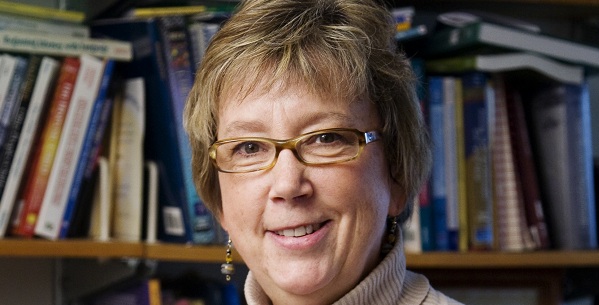Michaelene Ostrosky co-PI of $3 million IES grant aiming to improve the social acceptance of children with disabilities
by Allie Pitcher / Oct 22, 2012

Michaelene Ostrosky, department head and Goldstick Family Scholar in the Department of Special Education, is in the final stages of running a $3 million grant from the Institute of Education Sciences (IES). Her research has focused on establishing the efficacy of "Special Friends" as an effective class-wide program that improves the social acceptance of children with disabilities.
“Unfortunately there is a great deal of research that shows that children with disabilities are not accepted in their classrooms.” Ostrosky said. “They are more like guests in a classroom as opposed to being part of the community and being accepted as equal members in the classroom.” This four-year study, which continues through June 2013, has aimed at improving the acceptance of kindergarteners with disabilities.
Ostrosky, who is a co-PI for the grant, developed this project with her colleague Paddy Favazza, at Rhode Island College. The project has had two main goals in mind: to improve peer acceptance of children with disabilities and to enhance the social skills of children with and without disabilities in inclusive classrooms.
The Special Friends program incorporates three key components. “Kindergarten teachers read books (that include a character with a disability) and have discussions about disabilities with their students. Then the children move into inclusive cooperative learning groups and play for 15 minutes. Once a week children choose a book that includes a character with a disability to take home and read with a family member.” Ostrosky said.
With substantial research teams performing the intervention in Illinois, Rhode Island, and Massachusetts, Ostrosky and Favazza played major roles in the intervention in the classrooms themselves.
“We were in 32 classrooms three days a week for the six-week program in each school and then two weeks before and after intervention doing assessments,” Ostrosky explained.
Previously, there have been studies similar to Special Friends, but those studies were only implemented on a small group of students.
“Paddy and I decided that we would apply for funding to do a class-wide intervention.” Ostrosky said. “Rather than impact only a small group of children, we wanted to look at the classroom community and try to impact everybody in the class.”
To date, involvement in the Special Friends program has shown to be effective despite children’s gender, socioeconomic status, or racial/ethnic group, suggesting that the program is suitable for all children.
“What we want people to know is that if adults focus on the similarities between children with differences, we can bring students together to be accepting of one another,” Ostrosky said.